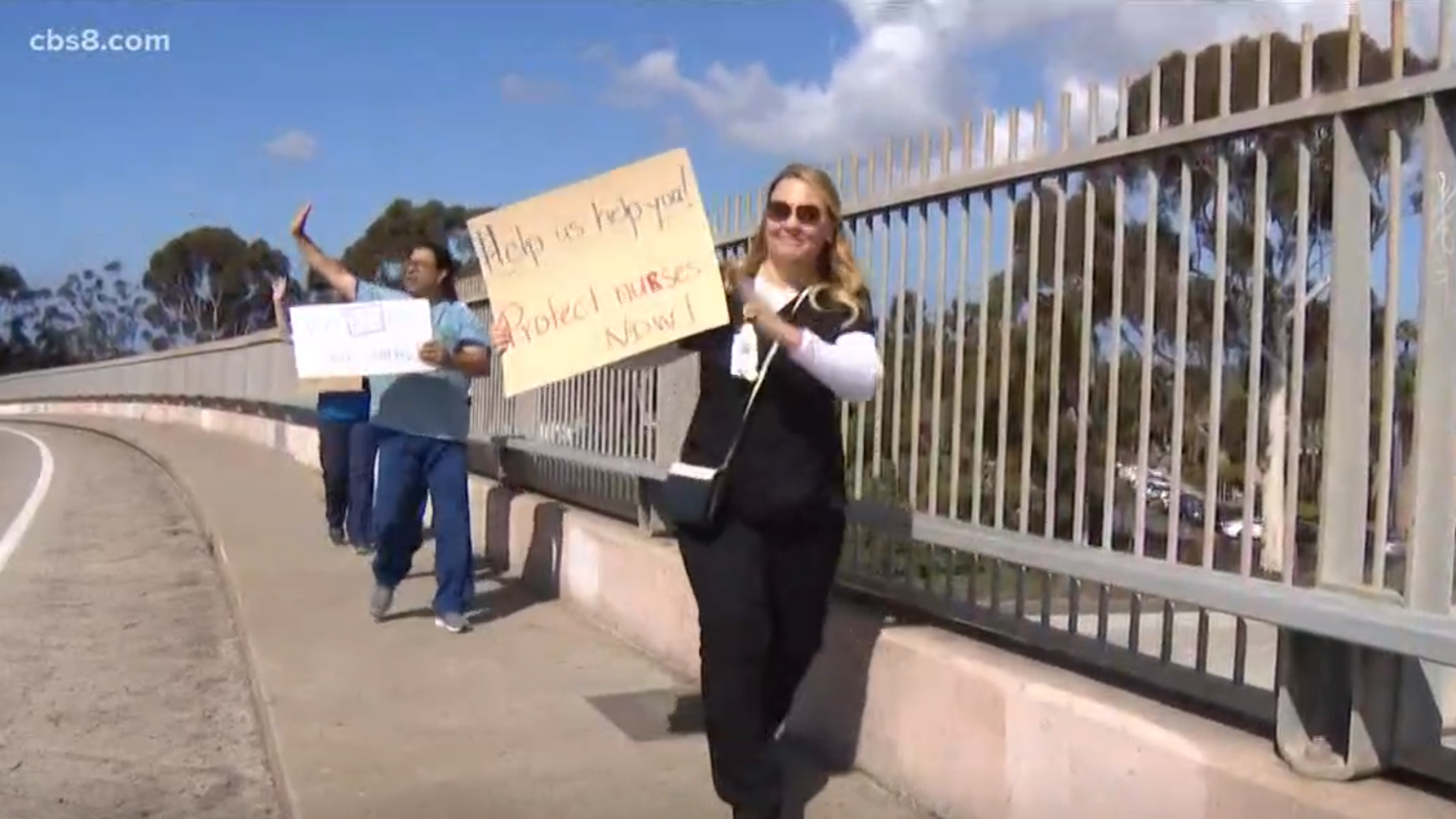SAN DIEGO — Upset over working conditions nurses, from Sharp Mary Birch and Sharp Grossmont hospitals gathered Sunday morning to call for changes.
“We’re trying to do our part in having the Sharp system basically offer us a higher level of protection than we are getting right now,” said Sergio Leos, a nurse at Sharp Grossmont.
The shortage of protective gear has been a major issue across the state and Sunday afternoon San Diego County leaders addressed it at a news conference.
“We had an extensive call where we spent a lot of time talking about personal protective equipment and we continue to fight to get as much as we can from every available source,” said county supervisor Nathan Fletcher.
But according to Leos and other workers, those efforts aren’t coming fast enough.
“We’re expected to work with all the different patients that are coming in and we don’t know if they’re positive or not. So we feel there is just not enough protection being provided to us,” he said.
News 8 reached out to Sharp Healthcare and they sent the following statement:
"Maintaining a sufficient supply of all PPE during the COVID-19 outbreak is a local, state, national and global priority. Sharp HealthCare is optimizing our current supply of PPE by following state and federal guidance for use of all PPE. Keeping our employees, physicians and those we care for safe is a top priority. Our current inventory needs are adequate but building a stronger inventory is imperative, and our Supply Chain Department continues to work tirelessly to increase our supply. As these efforts proceed, Sharp is constantly reviewing its PPE policies and educating staff to ensure we meet and exceed all requirements."
Sharp’s current infection control guidelines, which follow the CDC’s recommendations for suspected or confirmed COVID-19 patients, include:
- Standard masks, gowns, gloves and eye protection are the recommended equipment for droplet isolation and for nasopharyngeal specimen collection
- Patients with suspected or confirmed COVID-19 can be cared for in a regular, single-person room; caregivers should wear a standard procedure mask and gown, gloves and eye protection
- N95 respirators should be prioritized for high-risk, aerosol-generating procedures (AGP)
- Airborne Infection Isolation rooms (AIIRs) should be prioritized for patients undergoing procedures with a high risk of aerosol generation
As for Leos and those speaking out, they just want the public to heed the warnings and stay safe and inside unless necessary.
“By staying home you’re helping us get a handle on the disease. So please do your best to stay home, keep your distance, so we can do our best. So we can keep doing our work and we need your support.”
-------------------------------------------------------------
View all coverage of coronavirus / COVID-19
NEWS 8 joined forces with The San Diego Foundation to raise IMMEDIATE, EMERGENCY FUNDS for our most vulnerable neighbors in need. Here is how you can help.
BACKGROUND:
According to the CDC, coronavirus (COVID-19) is a family of viruses that is spreadable from person to person. Coronavirus is believed to have been first detected in a seafood market in Wuhan, China in December 2019. If someone is sick with coronavirus, the symptoms they may show include mild to severe respiratory illness, cough, and difficulty breathing.
Currently, there is no vaccine, however, the CDC suggests the following precautions, along with any other respiratory illness:
Avoid close contact with people who are sick.
Avoid touching your eyes, nose, and mouth.
Stay home when you are sick.
Cover your cough or sneeze with a tissue, then throw the tissue in the trash.
Clean and disinfect frequently touched objects and surfaces using a regular household cleaning spray or wipe.
Wash your hands with soap and water for a minimum of 20 seconds.
The CDC also says facemasks should only be used by people who show symptoms of the virus. If you’re not sick, you do not have to wear a facemask.

